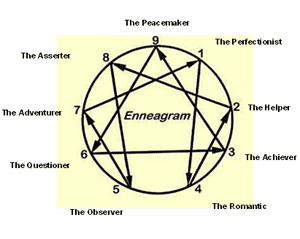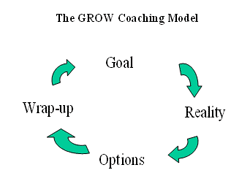|
Life Coaching for Teens
By Zainal Abidin Rahman B Sc, ACCA, MA (HRD)
NLP Trainer and Business Coach
Coaching is a rapidly rising new phenomenon. No, I
don’t mean soccer coaching or basketball coaching or
other forms of sports coaching which have been around
for maybe hundreds of years. What I mean are life
coaching, business coaching, executive coaching,
performance coaching or other forms of coaching intended
to help people achieve their professional or personal
goals and dreams. These forms of coaching are
intensively applied in the business world to support
already successful managers, executives and
professionals as they dared to challenge themselves even
more.
Actually, all these latter forms of coaching were indeed
inspired by sports coaching which works to help aspiring
athletes achieve their goals of becoming world-class or
simply better footballers, sprinters, golfers, etc.
During a life coaching session, you have a scenario in
which a coach (usually an older more experienced guy)
works with another person to help, guide, facilitate and
empower the latter to achieve his or her goals,
professional or personal.
Challenges facing teens
Will teens benefit from this type of coaching with all
their uncertainties and insecurities? Sure, almost
anybody can benefit from coaching. The teenage years are
usually a phase of their life during which symptoms of
emotional and relationship problems surface. Many may be
traveling a rocky path to adulthood. Who am I? Where am
I going? What do I really want? Young people spend a
great deal of time pondering these and related questions
in their quest for an identity. According to the famous
psychologist Erik Erikson, establishing a sense of who
they are is a major preoccupation of adolescence. With
more choices in educational and career paths available
to young people today there is often more confusion.
Just to summarize, these problems may include:
• Inability to relate to others - loneliness
• Anger and aggression
• Fear and avoiding change
• Conflicts
• Learning disabilities
• Attention issues
• Low motivation
• Avoiding responsibilities
• Melancholy ad depression
• Perfectionism
• Drug and alcohol abuse
• Gangsterism
• Lacking sense of identity
Teenagers are at a crucial time in their lives and often
find it hard to talk to their parents and teachers.
Through coaching, young people will have someone who
will really listen to them, to act as their sounding
board and to be fully present to them and to listen
without judgment.
The important thing for teens to benefit from coaching
is that they must possess the desire to want to improve
themselves.
Coaching benefits
Some of the general benefits teens may derived from a
well-constructed coaching program include:
• developing greater motivation for learning and studies
• gaining greater clarity on their life passions and
dreams
• possessing more confidence in their own intelligence
and talents
• developing a desire to interact with others
• becoming less self-conscious of their looks, voice,
etc
• learning when and how to negotiate and compromise•
• learning to cooperate better in a team setting
• developing leadership skills and knowing when to
project leadership qualities
• learning the skill of listening to others•
• feeling valued as a human being•
• respecting and appreciating themselves first. This is
turn will allow them to mirror true respect and
appreciation for others•
• reaching out to others in a more compassionate way•
• embracing and optimizing their life’s full challenges.
Coaching can be used in any setting and tasks in which
teens wish to perform at a higher level of competence
and proficiency.
Traditional Counseling vs. Coaching
So what are the differences between coaching and
traditional counseling that most teens must be familiar
with? Counseling usually wants to deal head-on with the
problems or the causes of the problem. When, say, a
persistent latecomer is counseled, the counselor would
usually begin by identifying the root causes of the
offence. He or she would normally concentrate on asking
“why” questions: “Why are you always late? “Why can’t
you wake up earlier?” “Why must you stay up late at
night?” Then the counselor would advise the offender how
the latter should deal with the various causes or
reasons of the late coming. In this way, the counselor
takes on the role of the expert – advising or directing
what the teen should be doing in order to avoid coming
late again. The counselor’s language is usually filled
with must’s, should’s, ought to’s, or have to’s. “You
must learn to be early to school.” “You ought to know
what to do.” “You have to buck up.”
In counseling there is therefore some element of threat
to the offender to change and improve. The tone of the
conversation is more like an interrogation than a
friendly chat. The counselor is also deemed to be the
expert who knows what is ultimately good for the
offender. There is a superior-subordinate relationship.
I am happy to add that most modern day trained
counselors have taken a less confrontational approach
toward their charges, although the superior “You must
listen to me and do what I tell you to do if you want to
make something out of your life” attitude is still very
much prevalent.
Coaching, including life coaching, is action-oriented,
solutions focus, concentrating on forward future actions
rather than dwelling on past mistakes and inadequacies.
Coaching begins with the assumption that all people are
creative, resourceful, and whole. When they don’t get
the results that they desire it is because they are out
of touch with their inner resources and life passion. It
is therefore the task of the coach to help them get in
touch with the necessary resources so that they return
“back on track.”
Life coaching is not about providing the right answers
to clients but about empowering them to look for answers
for themselves and to encourage them to commit to make
the necessary changes. Life coaching believes that
people, including young people with any education, have
the answers within themselves to deal with most of their
problems. But they need someone who is unbiased to
question, to challenge and to support them as they
consider the options available and make the decision
best suited to them. The life coach is to provide
support, structure and honest feedback without tainting
them with his own judgment. There is a lot of trust and
engagement of their sense of responsibility and
ownership.
Teen know thyself
Before doing a formal coaching, a good coach will
usually help the client get to know his own true
personality and natural inclinations as well as
strengths and challenges. Getting the client to do an
early assignment that is outside his or her comfort
level could create frustration and rejection of the
whole coaching process before they can taste the
benefits of coaching.
Finding out natural strengths and challenges is usually
done using a personality test. There are many
personality tests available such as the DISC profile,
Myers Briggs Type Indicator, Big Five and others. Teens
should however be aware that some personality test
systems are good in finding out “our type” after an hour
or so of filling in a questionnaire - meaning how we
will behave in certain circumstances but are not very
helpful in terms of how we should work to develop our
long term effectiveness and sense of well being. For
this reason, although I am certified in several
personality test systems, my favorite tool is the
Enneagram.
The Enneagram

The Enneagram is a modern powerful psychological tool
derived from ancient wisdom describing nine basic
personality types or styles. Many people claim it was
derived from the practices of Sufi groups who indulge in
self-reflection and self-evaluation (“muhasabah”) as a
vehicle to reach out to the divine – illustrated in the
saying “he who knows himself knows his Lord”. It lists
out the inner motivations, thought patterns and basic
beliefs of each of the nine personality types. It is a
tool that answers our perpetual questions such as “Who
am I?” “Why don’t I feel fulfilled?” “Why do I make the
same mistakes again and again?” “How can I become my
best self?” “How can I improve my effectiveness in my
work and in my relationships?”
The Enneagram recognizes how human beings have sincerely
different versions of reality. No version is presented
as better than another, just different. Each style has
its own strengths and talents as well as limits,
pitfalls, and blind spots. Each style spells out how you
are unique, and shows you your own personal roadmap to
your better SELF.
The Enneagram does not put us in “boxes”, but rather
show us which “box” we unconsciously and blindly put
ourselves in. More importantly, it teaches us how we can
move out of our “box” if we wish to. It points out to
our higher capabilities – what we are good at, what
creative resources are at our disposal when we are
happiest and most awake. It is a major tool in living
more fully in our day to day and future world.
The Enneagram is a system of psychology which is neither
inherently esoteric nor spiritual. Many people, however,
find that it has spiritual depth that helps them
diagnose how they relate to their inner self and to the
expression of that inner being. For this reason, the
Enneagram finds itself a relevant place in the corporate
world as it is in self awareness and spiritual programs.
Structuring a Coaching Session
Life coaches from different schools use different
coaching model. One of the most common coaching model is
called GROW (for Goal, Reality, Options, Wrap-up). I
will briefly illustrate a typical coaching session using
this model.

The model is a 4 step structure as follows:
1. Goal phase
• Coach and coachee agree on the specific topic and
objective of the discussion during the session
• If appropriate, they will also set the long term aim
of the coaching program.
2. Reality phase
• Coach will invite the coachee to do a self-evaluation
as to where he or she is currently in relation to the
aim of the coaching or objective of the session
• Coach will offer specific feedback and help coachee
check assumptions
• Coach will help coachee see the true reality by
discarding irrelevant history or data
3. Options phase
• In looking for solutions, the full range of options
should be considered.
• Coach will invite the solutions out of the coachee and
would be very careful when offering his own suggestions.
What is good for the goose may not be good for the
gander.
• Once both are satisfied that the full range of options
have been considered and thought through, coach will
ensure that coachee has made a conscious choice as part
of the action plan.
4. Wrap-up phase
• Coach requests coachee to commit to the action plan
within a specific time line
• Both will identify possible obstacles and consider how
coachee could overcome them
• The action plan must be broken down into specific
achievable steps
• They agree on subsequent follow up session
As you can see from the process, the coachee is as
committed, if not more, as the coach in looking for a
resolution to the problem. There is much rapport between
them and the relationship is one of equals. The coachee
becomes a more willing partner – the presupposition is
that he or she has the intelligence, ability and
character to achieve the goal once the steps are made
clear.
|
Zainal is a
business trainer and coach specializing in
personal and organizational change. He has
worked with thousands of clients, individuals
and corporate, and brings with him expertise in
OD, HR, NLP, ericksonian hypnosis, Solutions
Focus, Appreciative Inquiry, The Enneagram,
energy psychology and various other effective
modalities that create change at the personal
and corporate levels. Contact:
zainal@competencestrategies.com.sg. |
For reprint permission, please email
zainal@competencestrategies.com.sg.
[ top ]
|